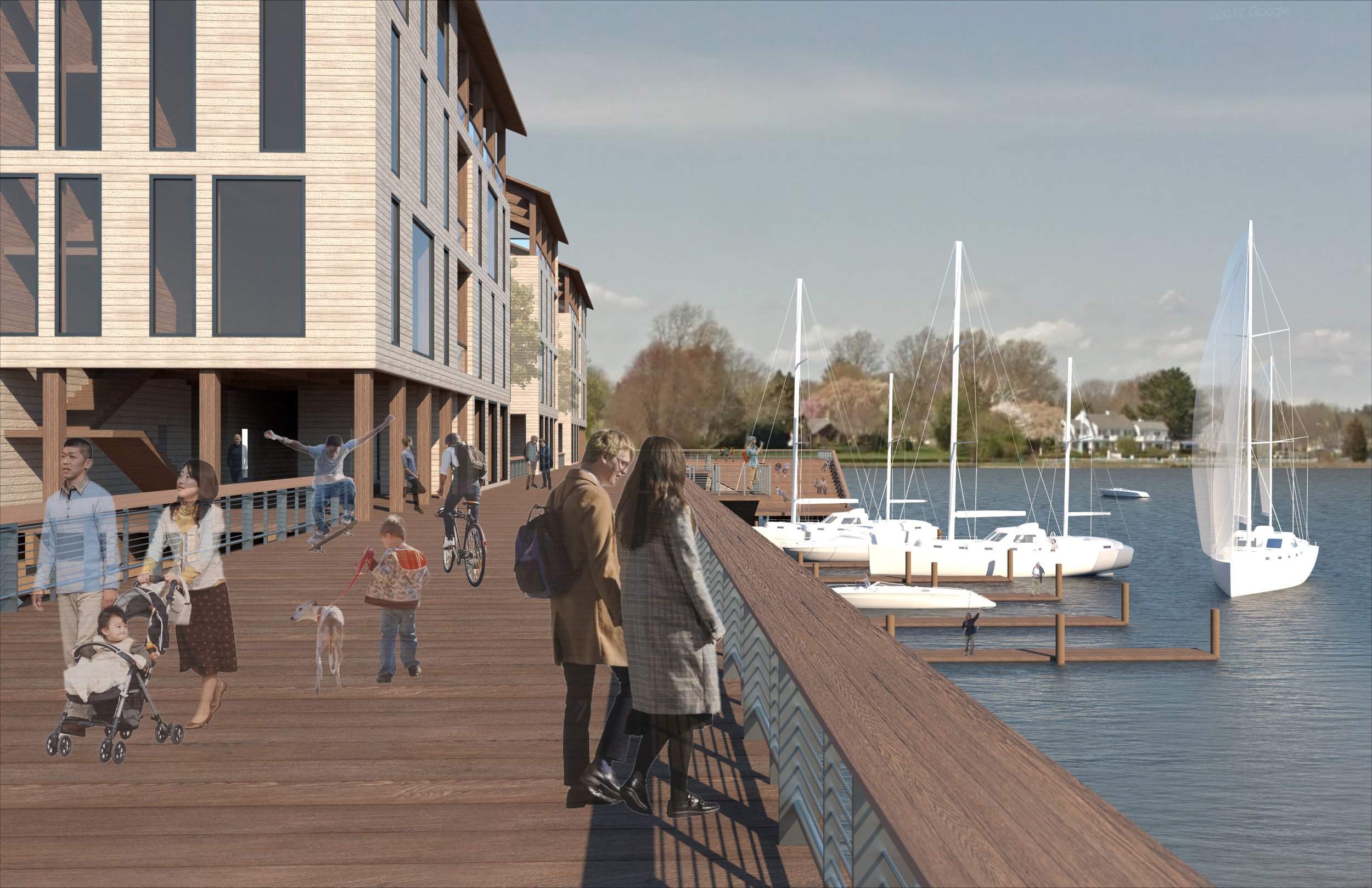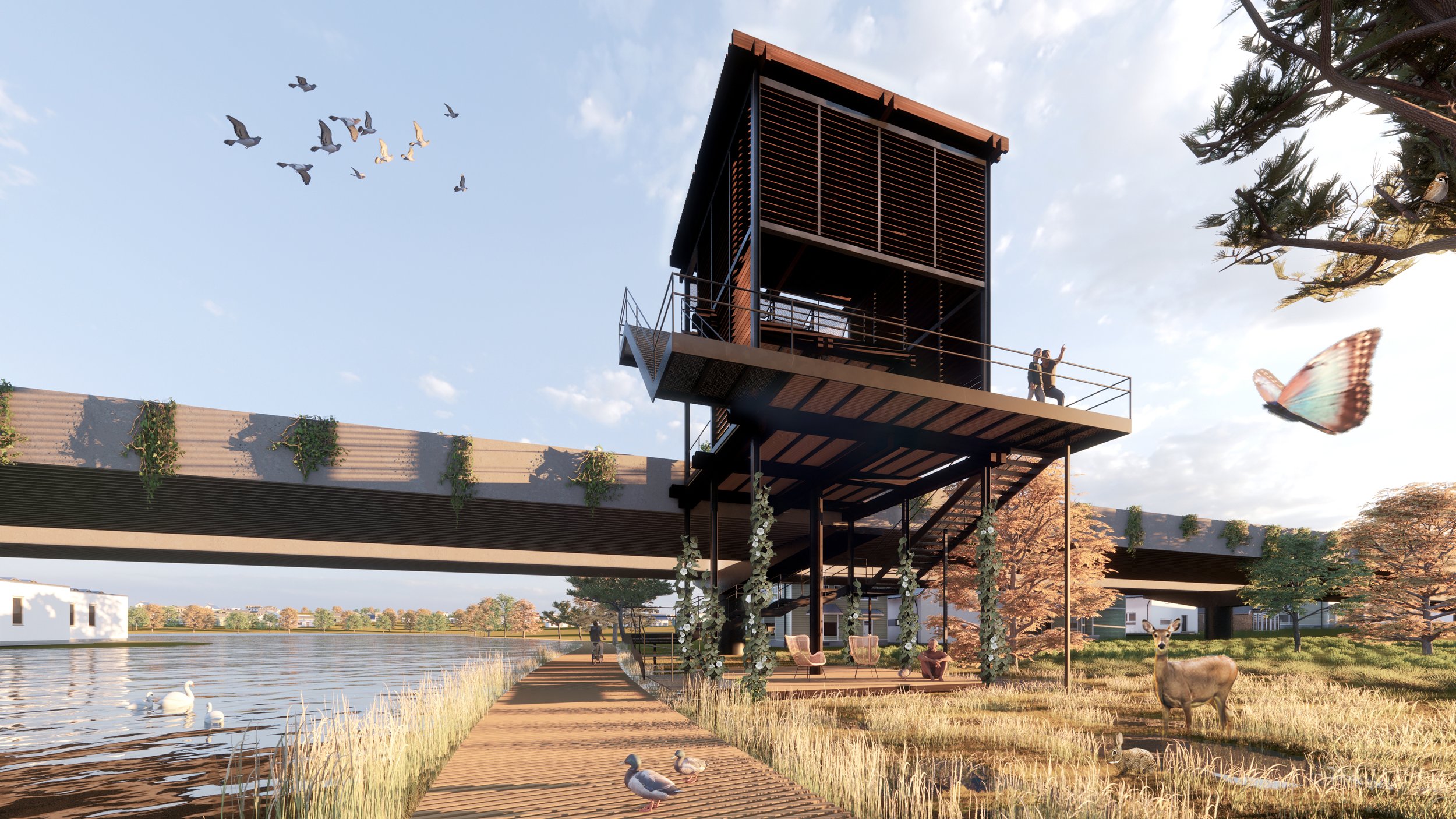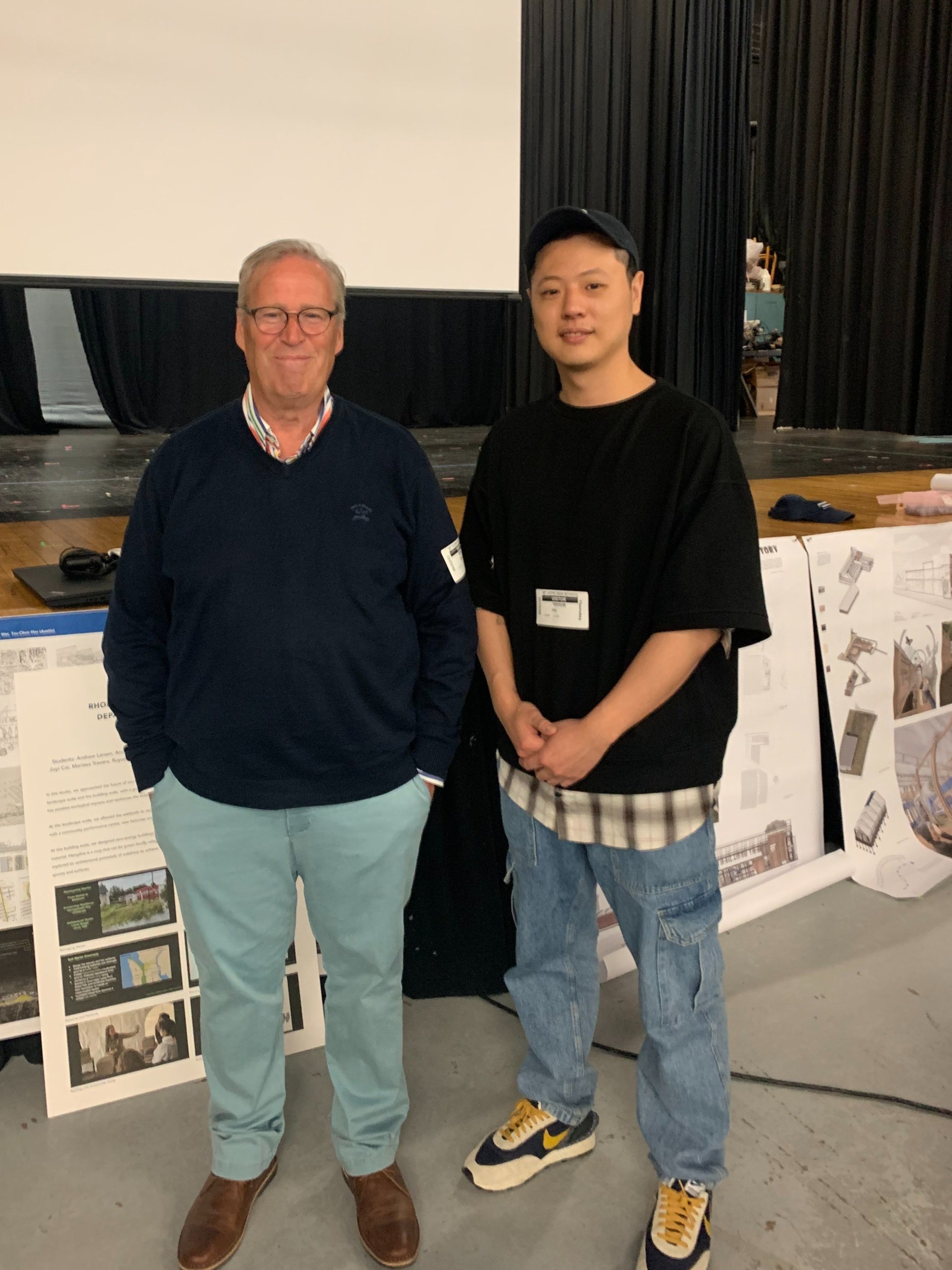Stories from Ashore: Learning to Live with Water in Warren, R.I.
Inundation on Market Street in Warren, Rhode Island (Photo courtesy Bob Rulli).At Envision Resilience, we support the exploration of science-based, design-led adaptations and we seek to amplify the anecdotal accounts of climate change in our community. In this series, Stories from Ashore, we will share stories of locals and their experience with climate change, introduce you to people in our community who are imagining a future with increased water on their properties and discuss pathways forward. What will be your response to climate change?
By Claire Martin
Bob Rulli has been a critical partner, advisor and ally throughout the duration of the 2022 Envision Resilience Narragansett Bay Challenge. We first met Bob, the Director for the Office of Planning and Community Development for the Town of Warren, in December 2021. Bob is responsible for all planning, land use and development activities for the Town of Warren, he serves as Administrative Officer for the Warren Planning Board, provides staff assistance to the Zoning Board of Review and is the Chair of the Warren Affordable Housing Trust Fund. Additionally, he provides staff assistance to the Economic Development Board, Voluntary Historic District Commission and Arts & Cultural Commission.
Market to Metacom Ocean State Job Lot conceptual perspective rendering (Fuss & O'Neill, September 16, 2021 workshop.)Both a planner and a leader on the front lines of climate change, Bob initiated the Market to Metacom Climate Resilience and Economic Development Plan which was recently recognized by the Rhode Island Chapter of the American Planning Association with an Award of Excellence. Throughout the semester, Bob worked with three of the Envision Resilience Challenge teams who were studying the Town of Warren. I recently sat down with Bob to talk about the impact that working with design students, as well as students across disciplines, can have on a community facing challenging decisions around issues related to climate change.
Claire Martin: As the Director of Planning for the Town of Warren, R.I., the smallest Town, in the smallest County, in the smallest state, how do you see your role as a leader in coastal resilience?
Author Elizabeth Rush and Bob Rulli at Imago Foundation for the Arts on May 18, 2022 following her talk “On Rising Together: Creative and Collective Responses to the Climate Crisis," one of a series of free, public community events held as part of “Rising Seas: Envisioning the Future Ocean State” exhibition at Imago Gallery in Warren this spring.Bob Rulli: I think my primary role is to raise awareness, it is an important role and not always the most popular. It begins with education around the issue of climate change and sea level rise and what the potential impacts will be. With Warren’s average elevation of 7’ those impacts will be significant. When discussing this with the public I try to start with all of the scientific data and forecasting that is available as to what we have relied on in formulating our plans. I know that there will be some members of the community that will dismiss the science, but it is a starting point in validating what we anticipate the impacts will be. My goal is never to use this information as a scare tactic or to instill fear, but to illustrate that what is on the horizon is very real. I also think it is important to refer residents back to recent weather events where street flooding may have occurred and use that as a reference point for them to understand that what might have been a one-day event will soon happen with greater frequency and that in the future it might not be an event anymore but a reality.
CM: What changes brought on by the impacts of climate change have you witnessed personally throughout your tenure in Warren? What changes do you anticipate in the near and distant future?
BR: Significant street flooding in and around the Belcher’s Cove area during King Tide events, street flooding along Child Street that resulted in significant property damage and loss from extreme precipitation, higher than normal water levels along the Warren River resulting in water spilling over the seawall are all occurring on a more regular basis. These events are only going to become more frequent. If we do nothing and ignore these realities, then there could be the potential for significant economic impacts as well as health and safety consequences. I am hopeful that by planning now, we can mitigate the impacts as best we can in the future. The actions we take now will not be popular for some and I understand that and why people would push back on what we are saying.
At the same time, I feel that I have a fiduciary responsibility to every resident in Town to be talking about the future. In the short term, if we can change the public's perception of climate change and its impacts, even just a little, then I believe we have an opportunity to further the conversation moving forward.
Members of the RISD Architecture team, professors Anne Tate and Laura Briggs and Bob Rulli present to students at Mt. Hope High School in Bristol, R.I. (June 2022)
CM: The Market to Metacom plan has been called many things: visionary, ambitious, pragmatic, crazy revolutionary. Tell us about it. What do you make of it? Why do you believe it is the best pathway forward for you constituents?
BR: I would agree with those descriptions and add forward thinking and bold. Market to Metacom is an opportunity for Warren to address the inevitable impacts of sea level rise in the Market Street area while at the same time undertake the revitalization of a very dated under utilized predominately low scale commercial corridor on Metacom Avenue. The Metacom portion of the plan could stand on its own as a revitalization plan and is a perfect example of smart growth and transit orientated development and creating potentially 500 plus units of mixed income housing. The Market Street area is clearly an area where “do nothing” is not an option so we are doing something. The very mention of property buy-outs and phased relocation rightly causes anxiety. These are life changing events, however, if repetitive loss or total property loss was to occur without a plan for “what if” then those are also life changing events. Criticisms of buy-out programs have largely been focused on two points, an equitable price for the property and displacement of the residents. We are cognizant of both of these concerns.
Our program for buy outs would be based on the “pre-disaster” value of a property. Redevelopment of the Metacom corridor which could include as many as 500 new housing units would offer those displaced residents an opportunity to remain in Warren and in many cases relocate to better housing than where they currently live. The Town will protect affordability and opportunity for those displaced by embedding in our revised zoning ordinances both provisions and incentives to ensure that displaced residents have priority if they are interested in relocating to that area. Allowing Mother Nature to reclaim the shoreline and reducing the amount of impervious surface area will significantly reduce the impact of sea level rise south of Belcher’s Cove.




CM: The retreat plan was initially inspired by university students from UPenn several years ago…correct? What does that tell you about student-led visions, work and community engagement?
BR: Yes, I had the privilege of participating in an open studio with students from the architecture program at the University of Pennsylvania. We went on a walking tour and as we were walking in the Market Street/Belcher’s Cove area the students remarked about how many of homes in the area seemed to be low lying in relation to the water level in Belcher’s Cove. That was the genesis of Market to Metacom initiative. Similarly, as a result of our participation in the Narragansett Bay Challenge, specifically students from the Rhode Island School of Design (RISD) and Syracuse University School of Architecture we have some new directions we are following. The RISD students incorporated innovative ideas as to how to treat wastewater which prompted us to consider what is the infrastructure capacity of the Metacom Corridor. As a result, we have submitted a grant application to the Rhode Island Infrastructure Bank (RIIB) to conduct a capacity study for all the infrastructure along the corridor (wastewater, gas, electric, water, transportation) which will allow us to see if there are deficiencies so that we can plan accordingly. Additionally, we will look at regional capacity. With respect to the SU students, the innovative way that they looked at the reuse of the Belcher’s Cove as both an educational and recreational asset will assist us in explaining “adaptation” to the public.
CM: How can the younger generation(s) inform and steer where our coastal communities find themselves by 2100? What is the power of that?
BR: I often comment that one of the most difficult aspects of discussing climate change and sea level rise is the messaging. I am experiencing more and more hope that children and young adults are much more concerned about these issues than their parents or other older adults. That is inspiring and makes me hopeful. The younger generation will be here in 2035 and 2050 and they seem to understand that the risks being discussed are real and will impact them in the future. As part of the Envision Resilience Narragansett Bay Challenge, I arranged to have some students from the Rhode Island School of Design and their professors who participated in the Challenge do a presentation to some local high school students. The students were engaged, interested, and asked thoughtful questions which was rewarding for me in that they get it. They are the future and if they continue to have their focus on these issues and continue to raise awareness then I believe they will be a powerful voice for change.
CM: Interested and inspired by the ground-breaking retreat plan, other municipalities have reached out to learn more. What does that tell you? Do you see other coastal communities like Warren taking on bold, innovative planning strategies?
BR: I believe my colleagues in the planning community totally understand the future impacts of climate change and sea level rise. I am extremely fortunate that our Town’s leadership has allowed me to put forth a plan with such forward-looking elements. I think some communities might be hesitant to take on these issues in a public way because of the push back that will occur. My feeling is it is better to be proactive than reactive. Planning for these events is a process involving policy and politics and that process is never fast and often not in tandem. If other communities have not begun the planning process they should and we are certainly more than happy to share our experiences, both good and bad.
Syracuse University News and RISD News and Events shared articles on the studios in Warren, which can be read here and here.






